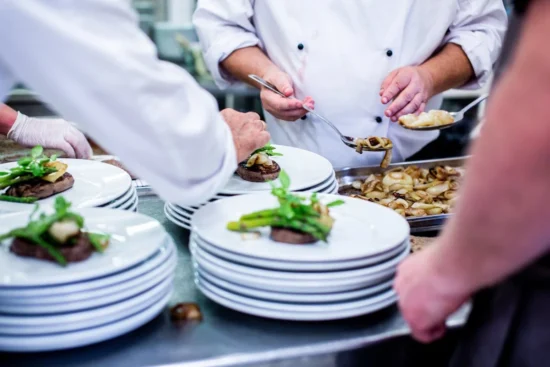Beyond the Restaurant | Unexpected Uses for Your Food Handler Certification

A Texas food handler certification is your ticket to working in restaurants, cafes, and other food service establishments. But did you know this valuable credential can open doors to a surprising variety of opportunities beyond the traditional kitchen? Whether you’re a seasoned chef or just starting your culinary journey, your food handler certification can be a versatile tool to enhance your career prospects and explore new possibilities.
1. Become a Private Chef
Do you dream of crafting customized menus and culinary delights for exclusive clientele? Your food handler certification is your first step towards becoming a private chef. Whether catering intimate dinner parties or managing the kitchen of a high-profile individual, this certification demonstrates your commitment to food safety and professionalism, instilling confidence in your clients.
2. Cater Events and Parties
From weddings and corporate gatherings to birthday celebrations and backyard barbecues, events of all sizes require skilled individuals to handle food preparation and service. With your food handler certification, you can launch a catering business or join an established catering company, bringing your culinary expertise and safety knowledge to a wide range of social and professional events.
3. Teach Cooking Classes
Sharing your passion for food with others is a rewarding experience. Your food handler certification not only equips you with culinary knowledge but also emphasizes safe food handling practices. This makes you a qualified and credible instructor for cooking classes, whether teaching basic techniques to beginners or guiding experienced cooks through advanced recipes.
4. Work as a Personal Chef
Busy professionals and families often seek the convenience of a personal chef to prepare healthy and delicious meals in their homes. Your food handler certification provides assurance that you understand and adhere to safe food handling practices, making you a trusted partner in managing their dietary needs.
5. Launch a Food Blog or YouTube Channel
In the digital age, food blogging and vlogging have become popular avenues for sharing recipes, culinary tips, and food adventures. Your food handler certification adds credibility to your content, demonstrating your commitment to safe food practices and establishing you as a knowledgeable resource in the online food community.
6. Become a Food Stylist
Behind every mouthwatering photograph in cookbooks and magazines is a skilled food stylist who meticulously arranges and prepares food for visual appeal. Your food handler certification is essential in this role, ensuring that food is handled safely and remains fresh and attractive during photo shoots.
7. Work in Food Product Development
Do you have a knack for creating innovative and delicious food products? A food handler certification is a valuable asset in the field of food product development, where safety and quality are paramount. Your knowledge of food handling practices will contribute to the development of safe and appealing new food items.
8. Volunteer at Food Banks and Shelters
Giving back to your community is a fulfilling way to utilize your skills and knowledge. Food banks and shelters rely on volunteers to assist with food preparation and service. Your food handler certification will enable you to contribute effectively, ensuring that food is handled safely and those in need receive nutritious meals.
9. Become a Food Critic or Writer
Do you have a discerning palate and a passion for writing? Your food handler certification provides a foundation for understanding food safety and preparation, enhancing your credibility as a food critic or writer. You’ll be able to assess not only the taste and presentation of dishes but also the hygiene and safety practices of food establishments.
10. Start a Home-Based Food Business
Many culinary entrepreneurs start their journeys with home-based food businesses. Whether you’re baking cakes, crafting artisanal jams, or preparing homemade meals for delivery, your food handler certification is often a legal requirement and demonstrates your commitment to providing safe and high-quality products to your customers.
Certified On The Fly | Choose Your Food Career Today!
A food handler certification is more than just a requirement for restaurant work — it’s a versatile credential that can unlock a world of opportunities in the culinary and food service industries. From private cheffing and catering to food styling and product development, your certification demonstrates your knowledge, professionalism, and commitment to food safety, opening doors to exciting and unexpected career paths.
Ready to explore the possibilities beyond the kitchen? Obtain your food handler certification today and embark on a culinary adventure that aligns with your passions and career goals. Whether you dream of becoming a private chef, teaching cooking classes, or launching your own food business, this certification is your first step towards success.
FAQ
What does a food handler certification cover?
A food handler certification program typically covers essential topics such as basic food safety principles, personal hygiene, cross-contamination prevention, temperature control, safe food storage, and identifying and preventing foodborne illnesses.
Where can I obtain a food handler certification?
Food handler certifications are often available through state and local health departments, community colleges, and online training providers like Certified On The Fly. Certified On The Fly is licensed and accredited by the Texas Department of State Health Services and our food handler certificates are valid statewide.
